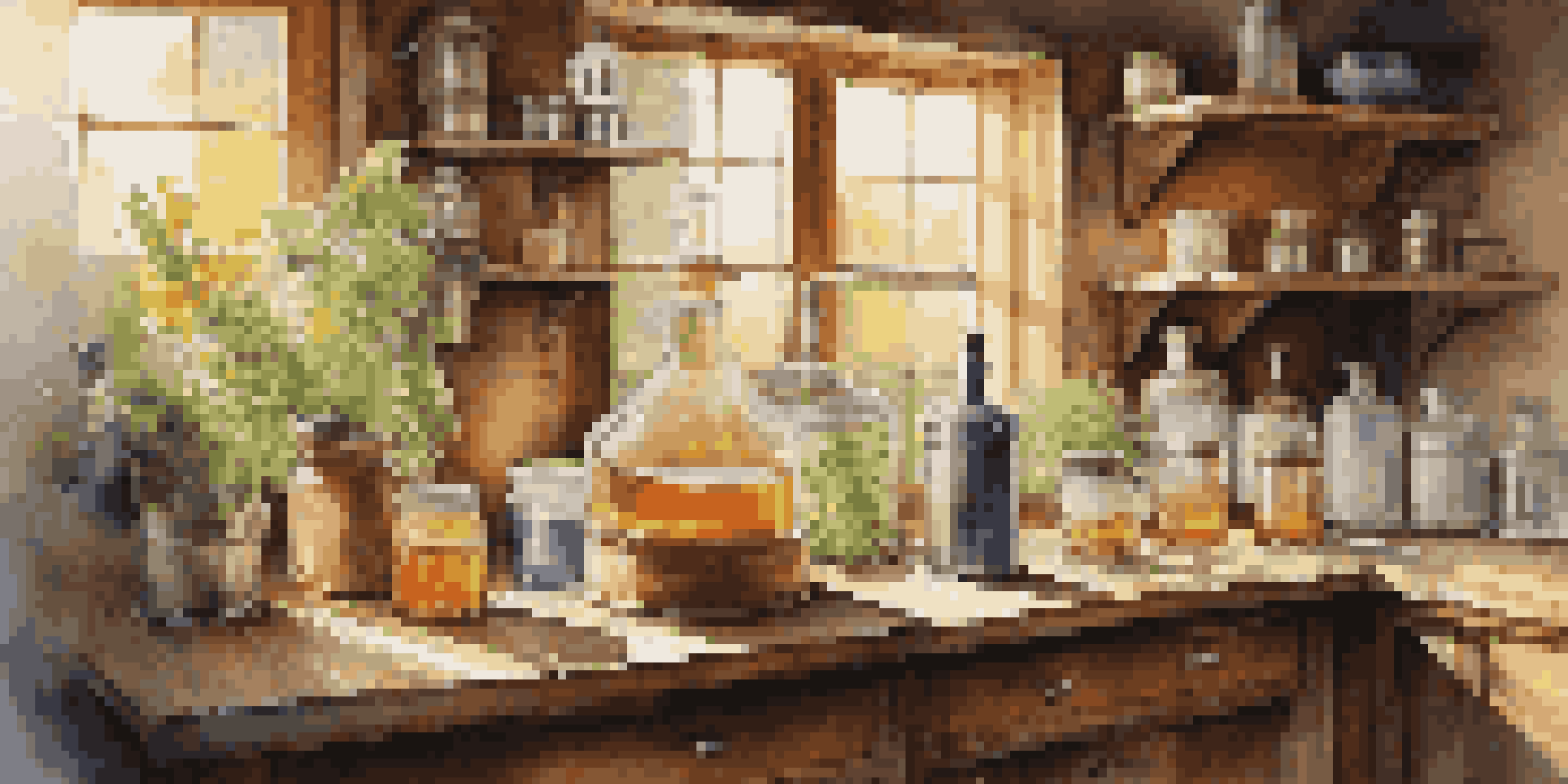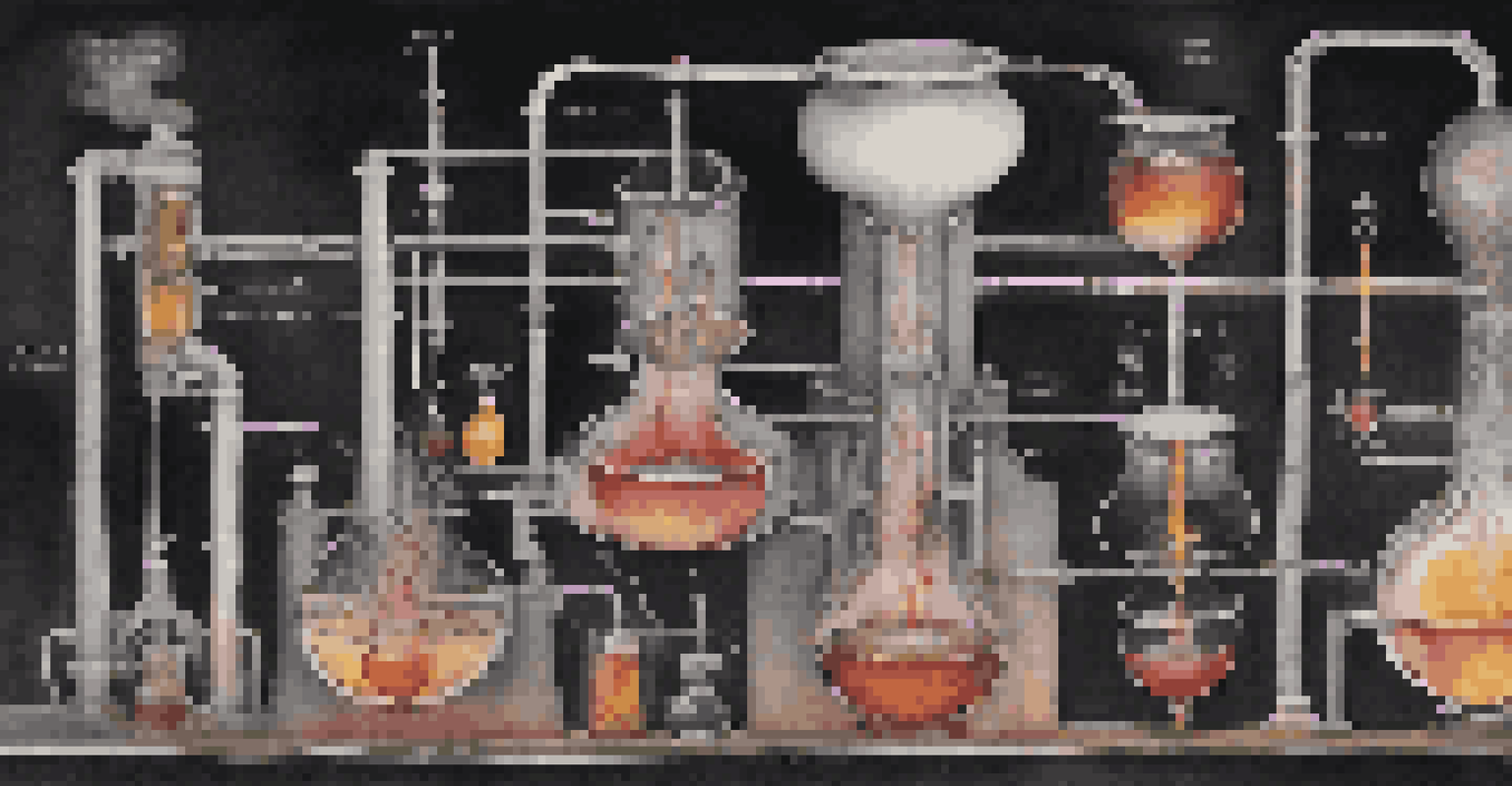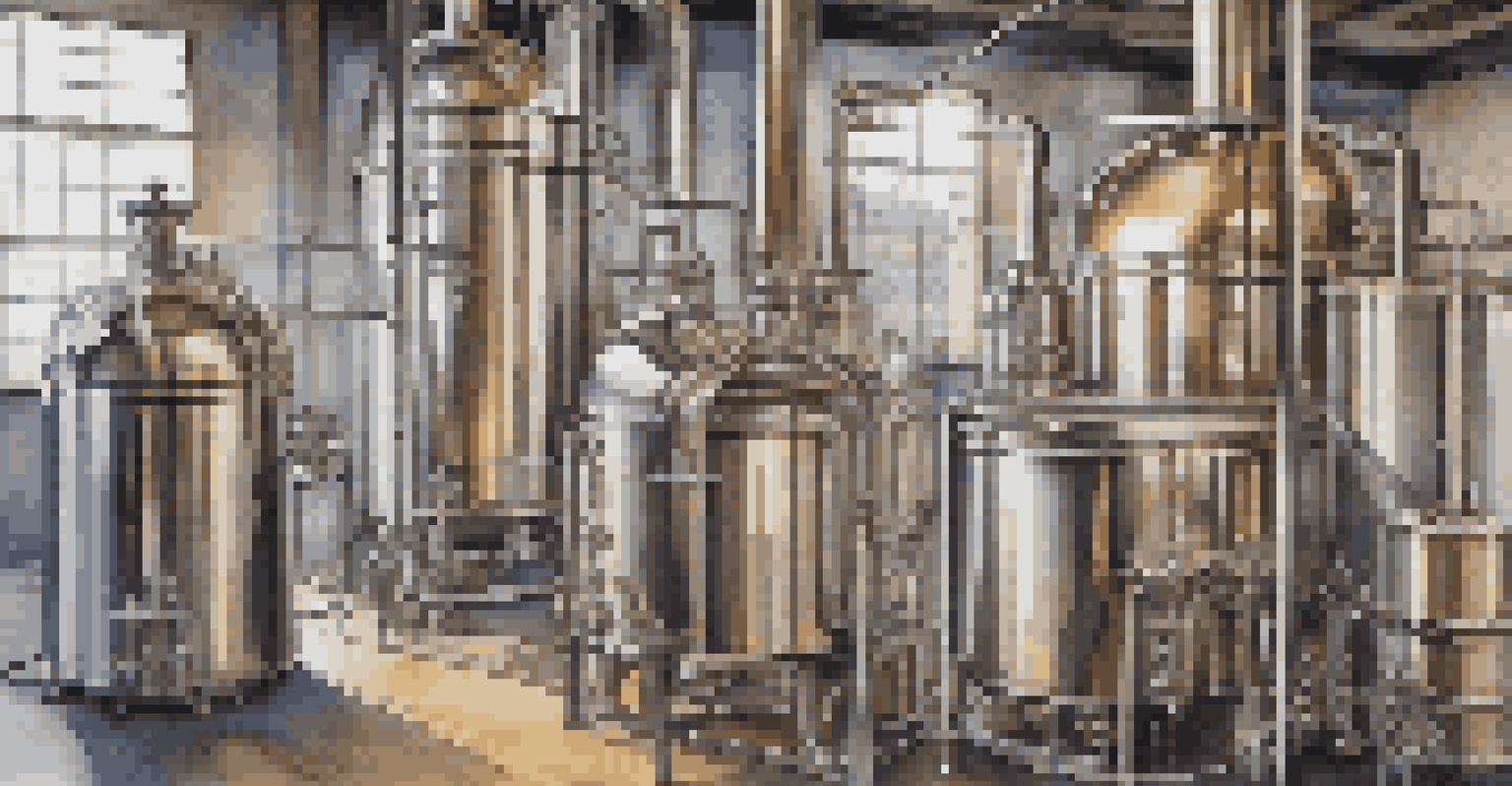The Risks of Home Distilling: What You Need to Know

The Legal Landscape of Home Distilling
Before diving into home distilling, it's crucial to understand the legalities surrounding it. In many places, distilling alcohol without a license is illegal, which can lead to hefty fines or even criminal charges. Knowing the laws in your state or country can save you from unexpected legal troubles down the line.
Safety isn't just a slogan, it's a way of life.
For instance, in the United States, the Alcohol and Tobacco Tax and Trade Bureau (TTB) regulates distilling. They require individuals to obtain permits, making home distilling a risky venture if you're not compliant. The laws vary significantly from one jurisdiction to another, so thorough research is essential.
Additionally, even if home distilling is allowed, there may be restrictions on the quantity you can produce. Understanding these regulations is vital, not only for your safety but also for ensuring you don’t run afoul of the law.
Safety Hazards of DIY Distilling
Home distilling involves the use of heat and potentially flammable materials, which can present significant safety hazards. The process typically requires boiling alcohol, which can lead to a fire if proper precautions aren’t taken. A small mistake can escalate into a dangerous situation quickly, so safety measures are paramount.

Moreover, the equipment used in distilling, like stills, can be dangerous if not handled correctly. Improper assembly or maintenance can lead to leaks or explosions. It's essential to understand how to use the equipment safely and to regularly inspect it for any signs of wear and tear.
Know the Legal Risks of Distilling
Understanding local laws is essential to avoid legal troubles when engaging in home distilling.
Lastly, the risk of producing toxic substances cannot be understated. If not done correctly, distilling can lead to methanol production, which is highly toxic and can cause serious health issues. Knowledge and experience are key to mitigating these risks.
Health Risks Associated with Distilled Spirits
Consuming homemade spirits poses health risks that are often overlooked. Unlike commercial distilleries, which adhere to strict safety standards, home distillers may not have the same level of quality control. This can lead to inconsistencies in alcohol content and the presence of harmful impurities.
Knowledge is power. Information is liberating. Education is the premise of progress, in every society, in every family.
For example, methanol, a byproduct of fermentation, can be present in improperly distilled spirits. Ingesting even a small amount can lead to severe health consequences, including blindness or even death. It's crucial to understand the distilling process to reduce the risk of harmful substances.
Additionally, excessive consumption of alcohol, whether homemade or store-bought, poses significant health risks. It's vital to approach home distilling responsibly and to be aware of the potential dangers associated with consuming high-proof spirits.
Financial Implications of Home Distilling
While home distilling might seem like a cost-effective hobby, the financial implications can quickly add up. Initial investments in equipment, ingredients, and safety gear can be substantial. Moreover, if you’re caught distilling illegally, the fines can be even more burdensome.
Beyond the initial costs, there are ongoing expenses to consider, such as maintenance of your equipment and purchasing high-quality ingredients. Distilling can become an expensive hobby if you're not mindful of these costs, which can lead to dissatisfaction and financial strain.
Safety is a Priority in Distilling
Home distilling poses significant safety hazards, so proper precautions and equipment maintenance are crucial.
It's also worth noting that if you decide to sell your homemade spirits, the financial risks increase dramatically due to legal implications. Without proper permits, selling alcohol can lead to significant legal trouble, further complicating your financial situation.
The Importance of Proper Equipment
Using the right equipment is critical for successful and safe home distilling. A well-constructed still ensures that the distillation process is efficient and minimizes the risk of accidents. Investing in quality materials can save you headaches down the road and lead to a better final product.
For instance, homemade stills can be made from various materials, but not all are suitable for distilling. Stainless steel and glass are often preferred due to their durability and non-reactive nature. Understanding the best materials to use is essential for both safety and quality.
Additionally, proper maintenance of your equipment cannot be overlooked. Regular cleaning and inspections help prevent accidents and ensure that your distilling process is as safe as possible. Remember, cutting corners on equipment can lead to serious consequences.
Understanding the Distillation Process
A solid grasp of the distillation process itself is vital for anyone considering home distilling. Distillation involves separating alcohol from water through heating and cooling, but it’s not as simple as it sounds. Each step of the process must be carefully controlled to ensure a safe and enjoyable product.
For example, knowing the difference between the 'heads,' 'hearts,' and 'tails' of the distillation process is crucial. The heads contain the most volatile compounds and can be harmful, while the hearts are the desirable alcohol. Understanding where to cut between these phases can make a significant difference in the safety and quality of your spirits.
Financial Costs Can Escalate Quickly
Initial and ongoing expenses in home distilling can add up, making it more costly than anticipated.
Moreover, beginners often overlook the fermentation process, which is equally important. Without proper fermentation, the distillation process may yield subpar results or dangerous byproducts. Take the time to educate yourself about each step to minimize risks.
Community Resources and Support
Engaging with the distilling community can provide invaluable support and information. Online forums, local clubs, and workshops offer a wealth of knowledge from experienced distillers. Connecting with others can help you navigate the complexities of home distilling more safely and effectively.
For instance, many communities have organizations dedicated to home brewing and distilling, where you can find mentors and resources. These networks often share tips, equipment recommendations, and safety best practices, making your journey smoother.

Additionally, attending workshops or classes can help you gain hands-on experience and learn from experts. Building relationships within the community can also foster a sense of camaraderie, making your distilling experience more enjoyable and less isolating.